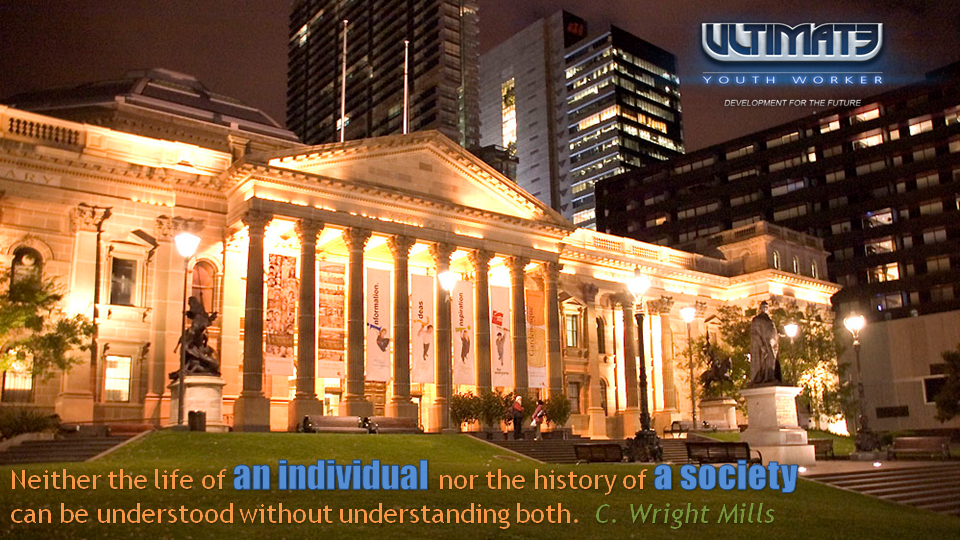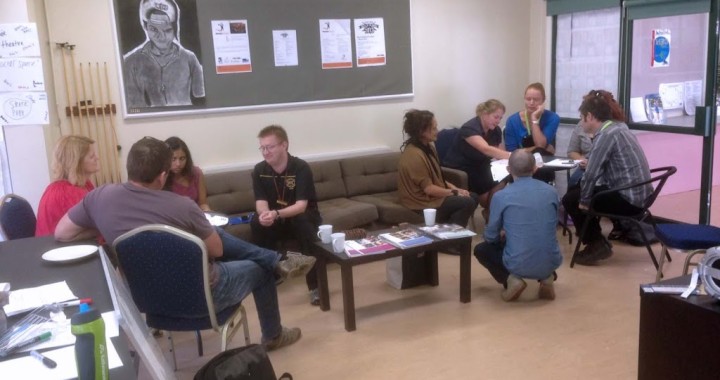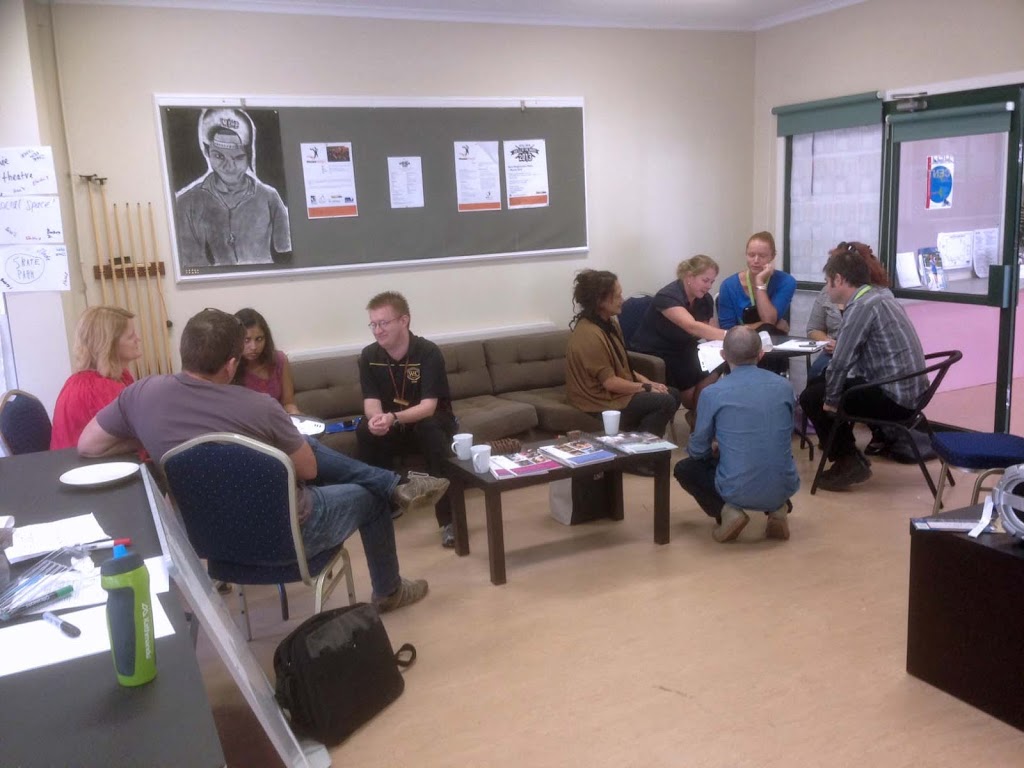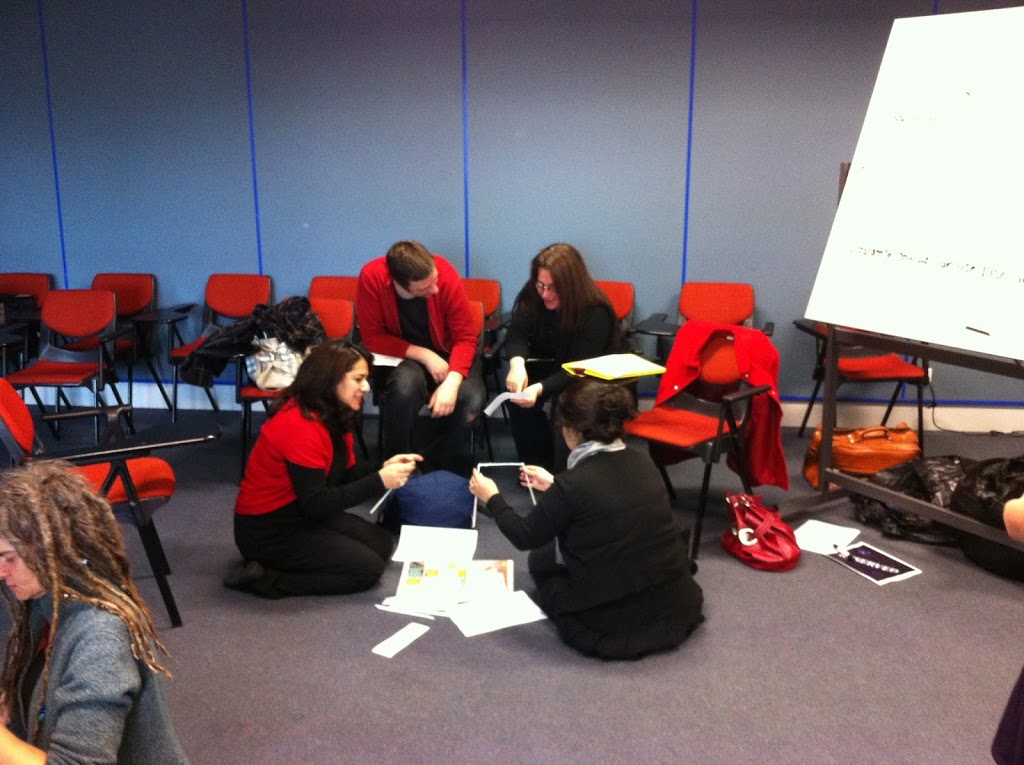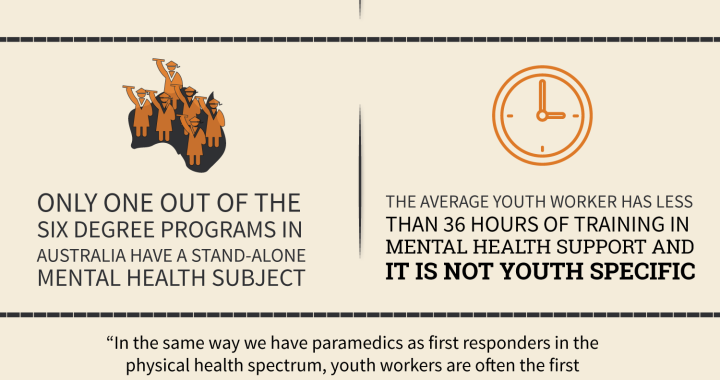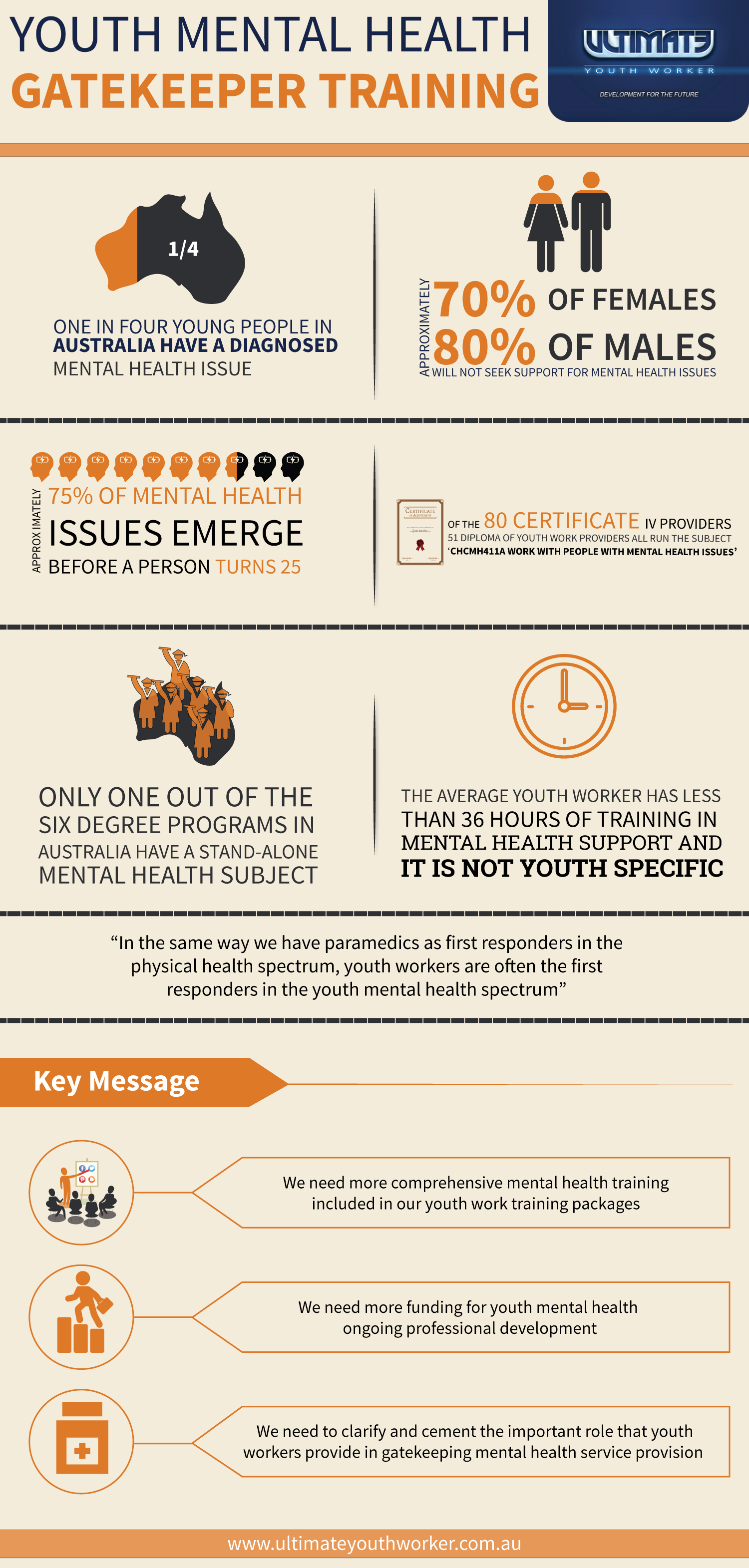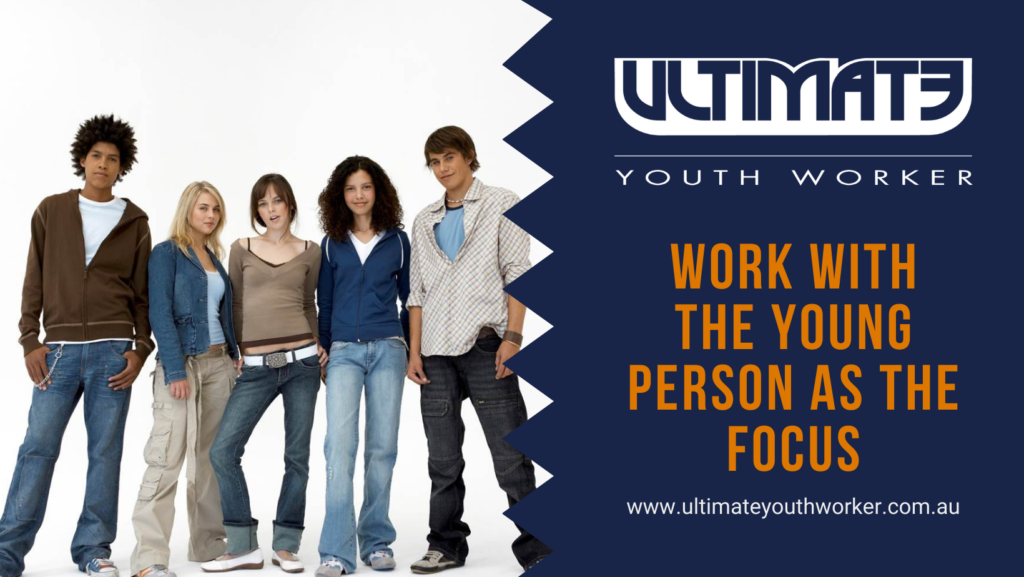
Work with the Young Person as the Focus
I was recently looking at the Certificate IV in Youth Work training package and wondering the age old question of what makes how youth workers engage with young people different. Different from social workers, teachers, student welfare professionals, mental health workers and all the other professions and para-professions that work with young people. It is an age old question in youth work. What do we do? How is this different from everyone else. In fact it is probably the foremost question of our professionalisation debate. The sad fact of the matter is that most youth workers cannot agree on the core tenets of youth work as a profession. It was with all this rattling around in my head when I came across one performance element in the very first youth work unit and my mind was changed, work with the young person as the focus. If youth work students could just fully get this then all the other debates become minutia.
The third performance criteria states that one of the areas of knowledge and skills that a youth worker must hold is to “work with the young person as the focus“. Now, this may seem like a foundational piece of knowledge and it is, after all it is in the first youth work unit of the Certificate IV (CHCYTH001 Engage Respectfully with Young People). It is also a fundamental skillset that many youth workers forget, or worse are required to dismiss.
You see there are many people in the world who want to guide our young people. For the most part these people have good intentions. Teachers want students to learn so they can get a job and live as part of society. Parents want their children to be safe. Student welfare staff want young people to have the language, literacy and numeracy skills to graduate. However, do they put the young person first? do they work for the young person as the focus? do they have other motives?
This is the key to great youth work ethos as well as exceptional youth work praxis. I will go into more depth below, but in the mean time lets get back to what the training package informs us about this. There are six performance criteria that youth work students must demonstrate here to be deemed to have the knowledge and skills to be a youth work graduate. They are:
|
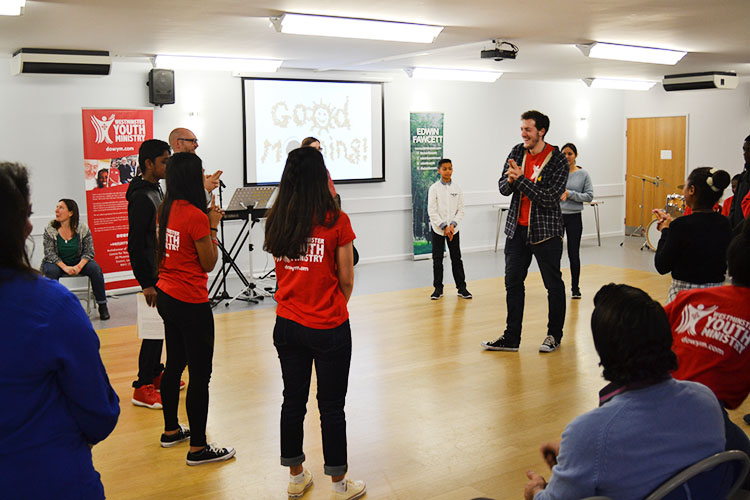
How do we work with young people as the focus?
Apply youth-centred practices when working with young people
The Youth worker needs to demonstrate that they have a solid grasp on youth-centred practices and how to implement these with young people. This begs the question, what are youth-centred practices? A few that spring to mind are ‘youth engagement’, ‘youth participation’ and Carl Rogers ‘person centred therapy’. There are a few more, but the idea here is the young person needs to be at the centre of the activity of youth work. So, if the young person is not at the centre of your work, you probably aren’t doing youth work.
Respect the rights, needs and responsibilities of the young person
Explain worker rights and responsibilities to the young person as necessary
Establish a professional relationship and boundary expectations with the client
Identify and manage power inequities in the professional relationship
As youth workers we must recognise that we have power over young people. We might try to minimise its effect, but it is there. How we go about identifying this, potentially with our young people and then managing it is central to being able to build and maintain out relationship. One key way to do this well is to have regular supervision where you are challenged about this.
Apply principles of ethical decision-making in working with young people
Having a code of ethics is a really important step for professional youth work. However the document is useless unless it is put into practice. As youth workers we need ethical decision-making frameworks to help us navigate the murky waters of youth work practice. One clear decision imperative is that our young people are our primary consideration, or as the training package puts it we work with the young person as the focus. We are big fans of Virtue Ethics at Ultimate youth Worker and we use this extensively in our work, however there are a number of ethical decision frameworks that can help us to put our young people at the centre of our decision making processes.
If we are to take youth work to the heights of professionalism we must be able to identify what makes us unique. One of the very clear practices that sets us apart is how we view those we work with. Not as helpless clients but as young people free to determine their futures. For us to engage respectfully with them it must not be from a stance of the all knowing adult. We often say to youth workers that our job is that of a sherpa. We are a knowledgable guide who walks alongside young people and we help to carry the load occasionally while they strive to reach the top of the mountain they are climbing at the time.
Join the Ultimate Youth Worker Community
If you are looking to be a more principled, passionate and professional youth worker then this is the community for you. Get regular podcasts, blog posts, training opportunities and much more.
Join nowAaron Garth
Aaron Garth is the Executive Director of Ultimate Youth Worker. Aaron has worked as a youth worker in a number of settings including local church, street drug and alcohol outreach, family services, residential care, local government and youth homelessness since 2003. Aaron is a regular speaker at camps, retreats, & youth work training events and is a dedicated to seeing a more professional youth sector in Australia. Aaron is a graduate of RMIT University and an alumnus of their youth work program. He lives in Melbourne with his wife Jennifer & their daughters Hope, Zoe, Esther, Niamh and son Ezra.
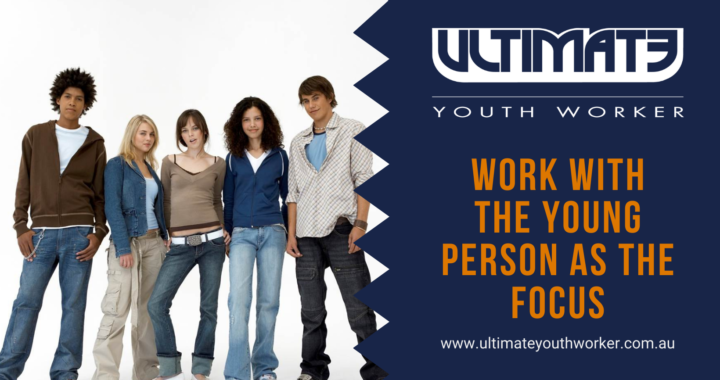





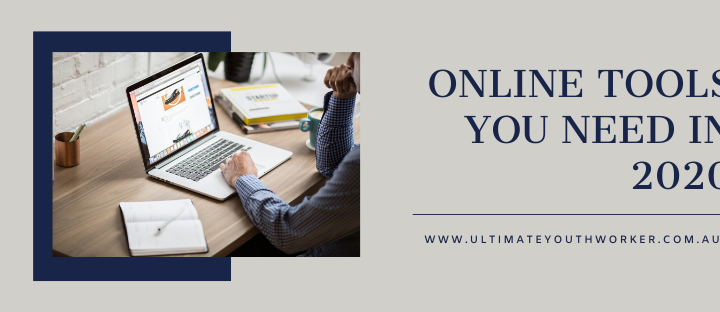
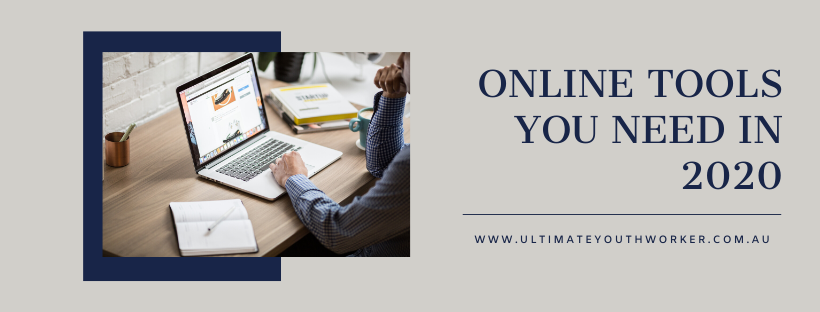 The online tool you need (
The online tool you need (








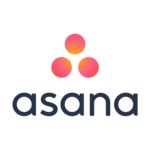

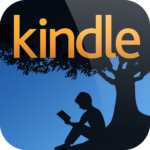
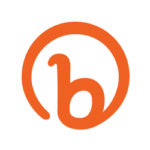



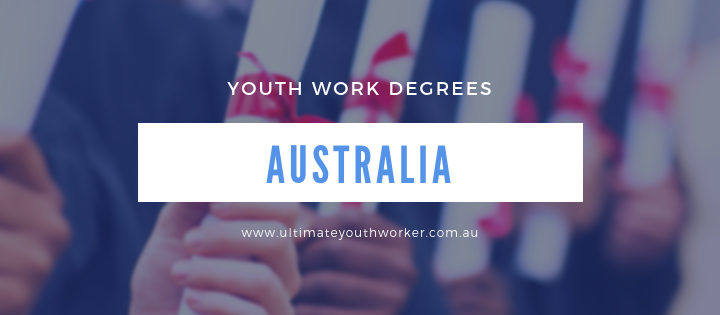


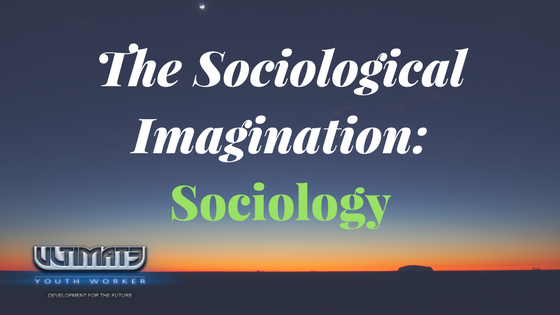
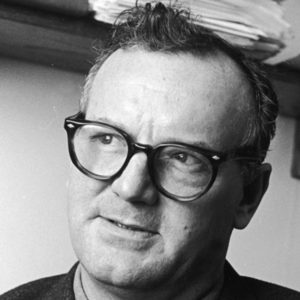 American Philosopher and Sociologist, Charles Wright Mills was a Professor of Sociology at Columbia University from 1946 until his death in 1962, aged 45. Mills, a native Texan, was published widely throughout his career in popular and intellectual journals, and is a proponent of the conflict perspective within sociological thought. Mills was concerned with the responsibilities of intellectuals in post-World War Two society, and advocated public and political engagement over disinterested observation.
American Philosopher and Sociologist, Charles Wright Mills was a Professor of Sociology at Columbia University from 1946 until his death in 1962, aged 45. Mills, a native Texan, was published widely throughout his career in popular and intellectual journals, and is a proponent of the conflict perspective within sociological thought. Mills was concerned with the responsibilities of intellectuals in post-World War Two society, and advocated public and political engagement over disinterested observation. In 1959 one of the most important texts in sociological work was published by Oxford University Press. The book by American Sociologist C. Wright Mills “The Sociological Imagination” changed the landscape of sociological thought and research forever.
In 1959 one of the most important texts in sociological work was published by Oxford University Press. The book by American Sociologist C. Wright Mills “The Sociological Imagination” changed the landscape of sociological thought and research forever.